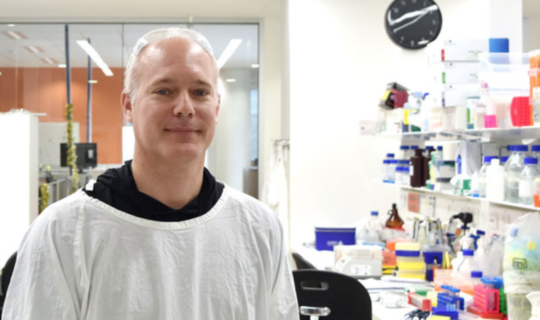
Associate Professor Mathias Francois
Centenary Institute
- 11:00
- Online , https://monash.zoom.us/j/87505281654 ?pwd=d1JLbjQ0L0FITksvREJwM1lnOH BzZz09
- Dr Edwina McGlinn
Cellular and molecular basis of vascular development and its application to vascular diseases
Bio
I was rewarded with a PhD in Molecular Pathophysiology (Paris VI) in June 2004. In 2005, under a NHMRC & INSERM Fellowship, I moved to the Koopman Laboratory (The University of Queensland, IMB, Australia) to study the role of SOX transcription factors (transcription factor= a class of protein that act as the control panel of the genome) in lymphatic vessel development in mammals. The major discovery of my post-doctoral work is the discovery of SOX18 protein as a molecular switch essential to the embryonic origin of lymphatic vessels.
The Francois lab was set up at IMB in 2012. My research program was designed at combining classic developmental biology approaches with molecular strategies from drug discovery to improve the management of the pathological vasculature via the targeting of transcription factor activity. Our work has led to the therapeutic proof of principle that SOX transcription factors are viable molecular target using small molecule inhibitors in the context of solid cancer metastasis. Further, our finding have reposition the clinical management of a rare orphan disease caused by SOX18 mutations.
I recently moved the laboratory (June 2019) to the Centenary Institute (USyd) to lead The David Richmond Program for Cardio-Vascular Development. The group activity relies on a highly multi-disciplinary approach that combines developmental biology, molecular imaging complemented by biophysics and genomics methods. The aim of our research is to take advantage of a deep understanding of transcription factor mode of action during development to unlock new therapeutic avenues in vascular diseases.
